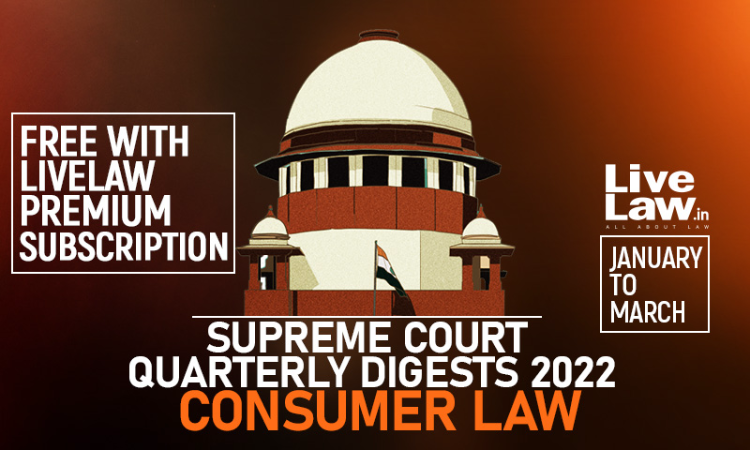Supreme Court Quarterly Digest 2022 - CONSUMER PROTECTION LAW (Jan - Mar)
LIVELAW NEWS NETWORK
28 May 2022 9:21 PM IST

Next Story
28 May 2022 9:21 PM IST
Consumer Law - Transfer Petition filed seeking transfer of consumer complaints pending before Consumer fora to Bombay High Court - Dismissed - The consumer complaints are filed under the Consumer Protection Act, therefore, such consumer complaints cannot be transferred to the High Court exercising the jurisdiction under Article 226 of the Constitution of India. Yes bank v. 63...
